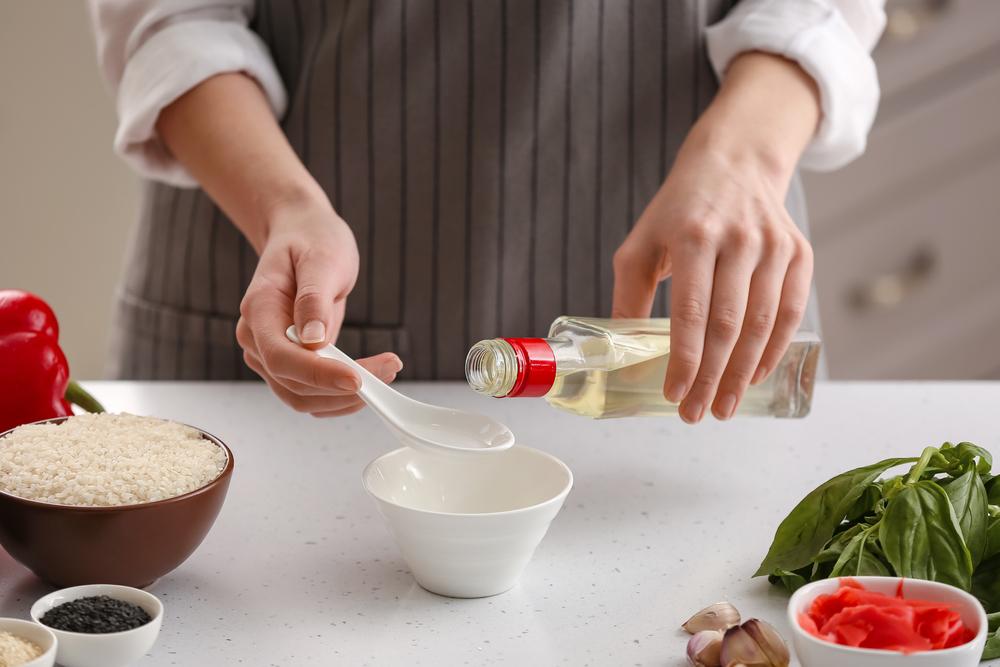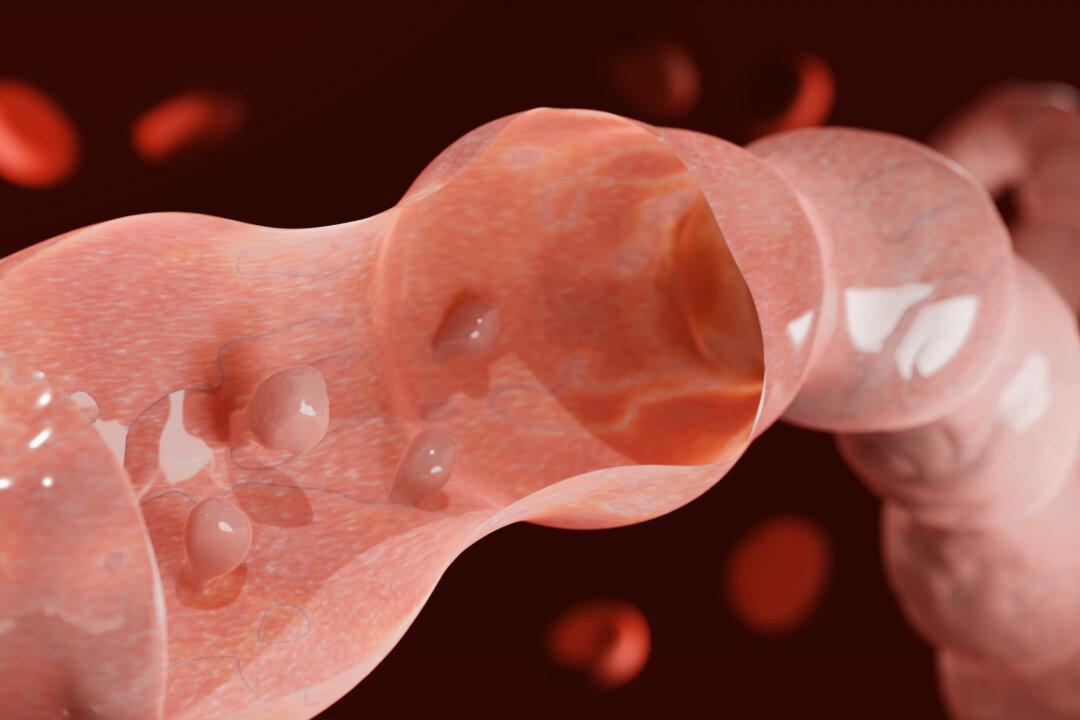Ginger is one of the most common seasonings in home cooking and an indispensable ingredient for warming up in the cold winter. In the Epoch Times program “Health 1+1,” Zhang Weijun, the fifth-generation successor of the esteemed Taiwanese traditional Chinese medicine (TCM) family, Huai Sheng Tang, highlighted the benefits of ginger, such as strengthening the heart, protecting the stomach, and preventing colds. He also shared traditional methods of consuming ginger, medicinal recipes, and ginger tea formulations passed down in his family for generations.
Ginger comes in various varieties and forms, and according to Mr. Zhang, different types serve different purposes.
Young ginger, harvested after four months of cultivation, exhibits pale and thin skin, exceptionally fine fibers, mild spiciness, and a crisp, refreshing texture. Ideal for raw consumption or pickling, young ginger is renowned for its ability to cut through greasiness and neutralize fishy odors. It is frequently used in appetizers, such as ginger slices served with sushi.
Ginger harvested after six months is plumper and larger, with a light brown color. It is known as “powdery ginger” and falls between young and old ginger in terms of maturity. Powdery ginger is significantly warmer in nature compared to young ginger, and it is effective in dispelling cold. It is well-suited for stir-frying, sautéing, or cooking sweet soups.
Old ginger refers to when ginger reaches 10 months of growth; the rhizome is fully matured and aged, and its color turns a deep brownish-yellow. It has rougher skin, distinct patterns, coarser fibers, and the highest gingerol content. Gingerol is responsible for ginger’s spicy flavor and increases with age. Old ginger is known for its excellent ability to dispel cold and warm the stomach, making it suitable for dishes like ginger duck, lamb stew, or sesame oil chicken.
The three types of ginger mentioned above are considered fresh; their juice can be extracted and is collectively referred to as “raw ginger.” Additionally, there are two other types of ginger.
Dried ginger is the product of old ginger after drying. It is obtained by cutting fresh ginger into thin slices, steaming them for 30 minutes, and sun-drying until they become dry, hard, and crispy. Commonly used as a Chinese medicinal herb, dried ginger’s effects are 10 times more potent than other types of ginger. It is particularly beneficial for those with weak hearts, obesity, or a cold constitution.
Benefits of Ginger and How to Consume It
Ginger is praised as the “sacred medicine for nausea,” highlighting its effectiveness in suppressing vomiting. According to Mr. Zhang, the optimal method is to extract ginger juice. Alternatively, you can grind ginger into a paste and extract the juice. Dilute 0.34 fluid ounces (10 milliliters) of ginger juice with 0.68 fluid ounces (20 milliliters) of warm water and drink it to achieve the best results in preventing motion sickness, seasickness, and vomiting.The Gastrointestinal Benefits of Ginger
Ginger is also a healthful ingredient for maintaining gastrointestinal health, offering the following benefits:- Alleviates diarrhea: When experiencing diarrhea due to consumption of cold foods or overeating, ginger can help slow down intestinal motility, alleviating diarrhea.
- Improves indigestion: Some people may feel full for an entire day after just one meal due to insufficient stomach acidity, leading to indigestion. Ginger-infused fish or meat soup can increase stomach acidity, stimulate digestive fluid secretion, and enhance overall digestion capabilities.
- Repairs gastric mucosa: For individuals with gastric ulcers or those frequently using anti-inflammatory or pain-relieving medications, drinking ginger soup can help improve gastric mucosal injury. Moreover, people who regularly consume alcohol or experience high stress levels are prone to gastric mucosal injury, and drinking ginger soup can help protect the stomach lining. Mr. Zhang advises using fish or meat to cook a savory ginger soup, as drinking sweet ginger soup may increase the risk of gastric acid reflux.
Other Uses of Ginger
Mr. Zhang also shared some additional functions and uses of ginger:- People with poor blood circulation can benefit from consuming more ginger, as it helps combat blood clots. Additionally, male hormones can contribute to the formation of blood clots, leading to inadequate nourishment to the scalp and resulting in hair shrinkage, thinning, and, ultimately, baldness. Applying and massaging ginger juice onto the sparse areas of the scalp can counteract blood clot formation, gradually allowing the scalp to grow thicker and denser hair.
- Individuals troubled by bad breath can try pickling young ginger in rock sugar and consuming a few slices after meals. This can kill harmful bacteria in the mouth and digestive tract, thus alleviating bad breath.
- If you accidentally ingest spoiled food, consume ginger. It can help prevent adverse effects such as diarrhea or allergies. Ginger possesses antibacterial and detoxifying properties, making it an excellent remedy for food poisoning.
- Processed foods such as sausages, ham, hot dogs, and hamburgers cooked at high temperatures contain carcinogenic nitrosamines. Ginger can inhibit the formation of nitrosamines, so incorporating a bit of ginger when consuming processed meats can reduce the risk of carcinogenic effects.
- Individuals experiencing acid reflux, indigestion, or bloating may have insufficient stomach acid. Consuming ginger slices regularly or after meals can help increase stomach acidity, thereby improving issues related to acid reflux.
The Benefits of Consuming Ginger in the Morning
Ginger is commonly used in warming dishes, such as the popular Southern Taiwanese breakfast ginger beef soup. Apart from warming the body, this dish can boost energy and vitality for the entire day. Another option is to eat one or two slices of ginger pickled with rock sugar during breakfast, which can invigorate the spirit and keep you energetic throughout the day. In some places where chicken rice is a common breakfast item, pairing this with a meat soup flavored with ginger slices makes for a delicious and nourishing meal.Mr. Zhang advises that excessive consumption of ginger before bedtime might affect sleep due to its potent stimulating and invigorating effects. Therefore, it is more suitable to include ginger in breakfast, offering greater benefits for the body during the earlier part of the day.

Ginger Tea and Soup Recipes
For those planning winter outings, preparing a pot of ginger tea is advisable to help withstand the cold. Mr. Zhang recommends using ginger blocks with brown sugar, readily available in markets, as they are simple and convenient. Just boil them in water until they almost melt. He also suggests creating delightful ginger tea beverages and soups at home.1. Old Ginger With Brown Sugar, Red Dates, and Longan
Ingredients:- 16.9 fluid ounces (500 milliliters) water.
- 6 slices (about 10 grams) ginger, preferably old ginger.
- 1 tablespoon (about 10 grams) dried longan pulp.
- 1 tablespoon (about 10 grams) red dates.
- 0.5 tablespoon (about 8 grams) brown sugar, or to taste.
2. Orange Ginger Soup
Boil old ginger with rock sugar, and then add a cup of freshly squeezed orange juice. Bring the mixture to a boil again before serving.3. Old Ginger and Perilla Leaf Tea
Ingredients:- 0.18 ounce (5 grams) fresh ginger.
- 0.1 ounce (3 grams) perilla leaves.
- 16.9 fluid ounces (500 milliliters) water.
4. Ginger Lamb Soup
Ingredients:- 0.18 ounce (5 grams) Chinese angelica.
- 0.35 ounce (10 grams) prepared Rehmannia.
- 1.76 ounces (50 grams) ginger slices.
- 10 red dates.
- 67.63 fluid ounces (2,000 milliliters) water.
- 10.58 ounces (300 grams) lamb.
5. Ginger Water
Place a few slices of ginger in a thermos, add hot water, and let it steep for half an hour before drinking.Potential Side Effects of Ginger
Mr. Zhang emphasized that, generally, incorporating ginger as a regular ingredient in cooking is safe for long-term consumption. However, intentionally increasing the quantity or concentration of ginger should be limited to short-term periods, such as a few consecutive days or spaced out over several days.Continuous consumption of large amounts of ginger may initially lead to noticeable excitement and increased energy levels. However, it can be detrimental to the liver in the long run. Mr. Zhang explained that the liver contains numerous enzymes, and the initial stimulation of enzyme secretion due to ginger consumption may enhance mental and physical energy. However, the persistent stimulation of liver enzyme secretion can result in liver fatigue and damage. Therefore, he recommends limiting the continuous consumption of a significant amount of ginger to no more than two weeks. After this period, taking a break for a few days is advisable. Ideally, one can consume ginger for two days and then rest for two days. This approach allows the liver to continually produce new enzymes, maintaining health benefits without harming the liver.
Ginger has a warm and “heaty” nature, making it an excellent ingredient for warming the body and dispelling cold. However, individuals prone to excessive internal heat or those with a predisposition to hemorrhoids are advised to start with small amounts of ginger before gradually increasing intake. Prolonged and excessive consumption of ginger may lead to issues such as hemorrhoids, nosebleeds, swollen gums, hard stools, and constipation. Therefore, such people need to monitor their reactions to ginger.
Some herbs mentioned in this article may be unfamiliar, but they are generally available in health-food and Asian grocery stores. It is important to note that treatment methods may vary depending on the individual. Please consult a health care professional for a specific treatment plan.






